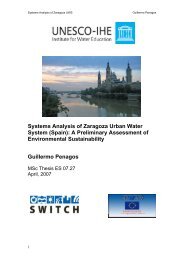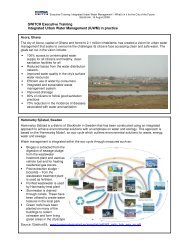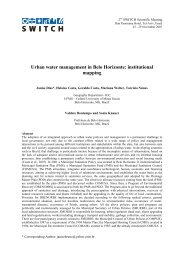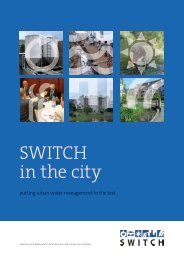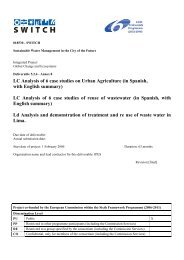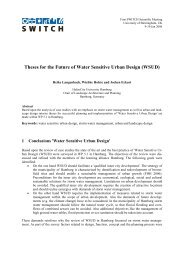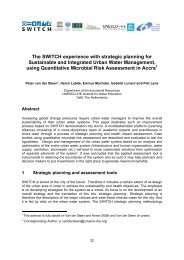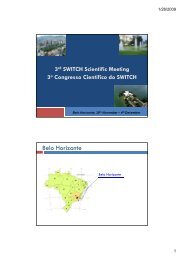Good practices for Social inclusion - Case studies and summary
Good practices for Social inclusion - Case studies and summary
Good practices for Social inclusion - Case studies and summary
You also want an ePaper? Increase the reach of your titles
YUMPU automatically turns print PDFs into web optimized ePapers that Google loves.
Positive outcomes in the north of Engl<strong>and</strong> city pilot<br />
<br />
<br />
<br />
<br />
<br />
Convincing residents <strong>and</strong> officials: the process showed new possibilities to residents <strong>for</strong><br />
having a say;<br />
Motivation: The direct link between participation <strong>and</strong> outcomes clearly motivates local<br />
people to act <strong>and</strong> take responsibility.<br />
Opening up new spaces <strong>for</strong> democratic engagement: opened up alternatives to existing<br />
decision-making processes;<br />
Ownership: generated a sense of control over local decisions etc.<br />
In<strong>for</strong>ming debate on all sides: Participants valued the insights gained about decisionmaking,<br />
including greater awareness of the constraints faced by local councils <strong>and</strong><br />
enabling more in<strong>for</strong>med <strong>and</strong> less heated debates about funding as a result.<br />
Source: Blakey, 2007<br />
Box 7 : Positive outcomes in the north of Engl<strong>and</strong> city pilot<br />
The case study source material does not provide a detailed analysis of particular strategies<br />
that were employed specifically to support the involvement of socially excluded groups in the<br />
process – although it is clear that communications via existing community events <strong>and</strong> doorto-door<br />
canvassing of opinion <strong>and</strong> invitations to residents would have helped at least in<br />
spreading the word. Nor was there a clear mechanism <strong>for</strong> redistributing resources to poorer<br />
areas. There were a number of limitations with the process undertaken (see Box 8 below).<br />
Challenges <strong>and</strong> lessons from the north of Engl<strong>and</strong> city case study of PB<br />
<br />
<br />
<br />
<br />
<br />
<br />
Incentives to participate: Where participants see they can influence decisions, there is<br />
motivation to participate. Half the participants came from one particular neighbourhood,<br />
because the local school in<strong>for</strong>med parents of the upcoming event <strong>and</strong> explained that the<br />
meeting would directly affect the decision regarding funding <strong>for</strong> the school’s project.<br />
Deliberation was absent: Space was not given <strong>for</strong> residents to explain, defend or test their<br />
views on others - developing budget literacy requires space <strong>and</strong> time to grow.<br />
Demonstration effect: As a pilot initiative, this process illustrated how to involve local people<br />
in decision-making. Those leading <strong>and</strong> promoting the pilot see it as an important first-step,<br />
even if it is a limited process in terms of the funding available, duration etc.<br />
St<strong>and</strong>-alone versus cyclical process: Despite interest there are no concrete plans <strong>for</strong> follow-up.<br />
Across the UK participatory budgeting is being piloted, but as one-off activity, which affects<br />
the outcomes. In this case, funds were allocated on an area basis only, not on thematic lines<br />
at all. Only in a cyclical process would the deliberations provide different areas of the<br />
municipality with repeat opportunities to learn <strong>and</strong> mobilize around specific issues to obtain<br />
resources.<br />
Leadership from dedicated individuals, rather than <strong>for</strong>ming part of a groundswell of public opinion. In<br />
contrast to Brazil, in the UK there is not the same movement dem<strong>and</strong>ing political<br />
engagement <strong>and</strong> hence the pilots are not explicitly political processes.<br />
Limitations because of the use of ad-hoc grant funding with pre-determined targets: The<br />
participatory nature of the budgeting process is constrained, because the pilots are currently<br />
95




